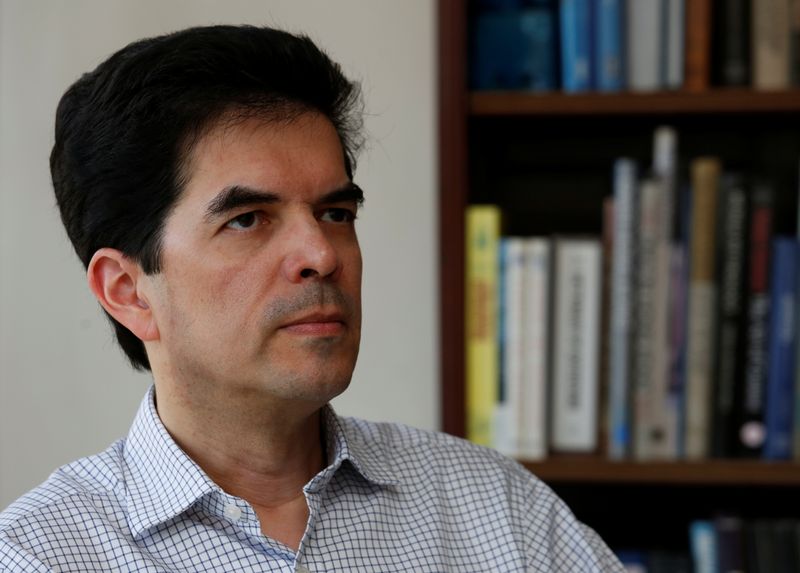This post was originally published on this site
https://i-invdn-com.akamaized.net/trkd-images/LYNXMPEG570JO_L.jpg
HONG KONG (Reuters) – Hong Kong activist investor David Webb has said he will step back from posting his widely read critiques of companies and the city’s government after being diagnosed with prostate cancer.
Webb, a former investment banker, has since 1998 published influential opinion pieces covering economic and corporate governance, finance, regulatory and political issues in Hong Kong on “Webb-site.com.”
His pieces are read widely by regulators, investors, bankers and lawyers in Hong Kong.
In 2017, he mapped a complex web of cross-shareholdings between Hong Kong-listed companies in a report entitled “The Enigma Network: 50 stocks not to own”.
Just months later, 40 of the stocks were at the heart of a market crash which erased $6 billion in market capitalisation from Hong Kong’s junior board.
In Monday’s post, Webb said that his life expectancy had been reduced, and that he needed to reprioritise after the diagnosis.
“I will have to be more economical with my time, but I will continue to write and speak out on the big issues where I feel it can make a difference, so don’t count me out yet,” he said.
Webb has sent more than 1,000 letters to bourse operator Hong Kong Exchanges & Clearing Ltd (HK:0388) and the city’s markets watchdog, the Securities and Futures Commission, on topics from company disclosure lapses to trading rules, he estimated in a 2019 interview with Bloomberg.
Webb has also recently proposed changes to the ways Hong Kong lawmakers are elected by “functional constituencies” representing narrow special interest, typically commercial, groups.
For 10 years he published a widely-read “Christmas Pick”, recommending one stock with good corporate governance, but stopped in 2009 saying that while the stocks had outperformed Hong Kong’s benchmark Hang Seng Index (HSI) by 552.8% over the period, it had become a distraction to his “main goal of raising the standards of Hong Kong’s corporate and economic governance”.

